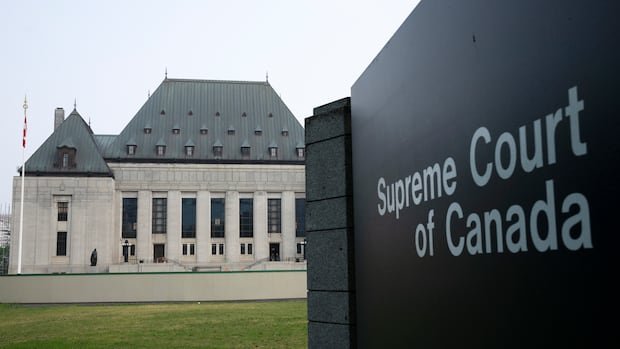A recent ruling by the Supreme Court of Canada in an Alberta case involving historical sexual abuse emphasizes the proper handling of sexual offenses against children in the legal system. Paul Sheppard was instructed to report to authorities in April, just two months after being granted full parole, following a unanimous Supreme Court decision that reinstated his original six-year sentence from 2021. Sheppard, currently in his 60s, was convicted of sexual interference and invitation to sexual touching against the victim, Steacy Easton, during the early 1990s when Easton was a Grade 7 student at the now-closed Saint John’s School of Alberta where Sheppard worked as a teacher.
The Supreme Court issued its rationale for the judgment last Friday, highlighting several concerns regarding the 2023 Alberta Court of Appeal decision that had reduced Sheppard’s sentence to under four years. Chief Justice Richard Wagner pointed out issues with the appeal court’s majority verdict, specifically addressing outdated beliefs and stereotypes surrounding complainants of sexual abuse. The ruling emphasized that a victim’s credibility should not be questioned based on their response to the abuser, as there is no definitive behavior pattern for individuals who have experienced sexual abuse.
Additionally, the judgment revealed that Sheppard had a history of exploiting children while in positions of authority, information that was not disclosed during his trial or subsequent appeal. Easton, the victim, successfully petitioned to lift the publication ban on their identity in 2021, expressing relief at the corrective nature of the court’s decision. However, Easton expressed frustration with the prolonged court process and the lack of control victims have over legal proceedings.
During the Supreme Court hearing, concerns were raised about Sheppard’s past convictions, including allegations of sexual assault and assault against young boys in the 1980s when he served briefly as a police officer. Sheppard pleaded guilty to multiple assault charges in 1987, leading to questions about the disclosure of his criminal history during the 2021 trial. The Parole Board of Canada did take into account Sheppard’s previous convictions in their decisions despite the lack of disclosure during the trial.
Furthermore, the Supreme Court judgment was supported by the Raoul Wallenberg Centre for Human Rights, which criticized misconceptions about sexual violence perpetuated by the Alberta Court of Appeal decision. The Center’s chief general counsel, Angela Marinos, highlighted the importance of recognizing the severity of historical sexual offenses against children and the need for accountability. Marinos emphasized the long-lasting impact of sexual violence on survivors and children, noting that legal decisions play a role in the healing process.
In conclusion, the Supreme Court’s ruling underscores the gravity of historical sexual abuse cases and the responsibility of the legal system to ensure justice and accountability for survivors.


